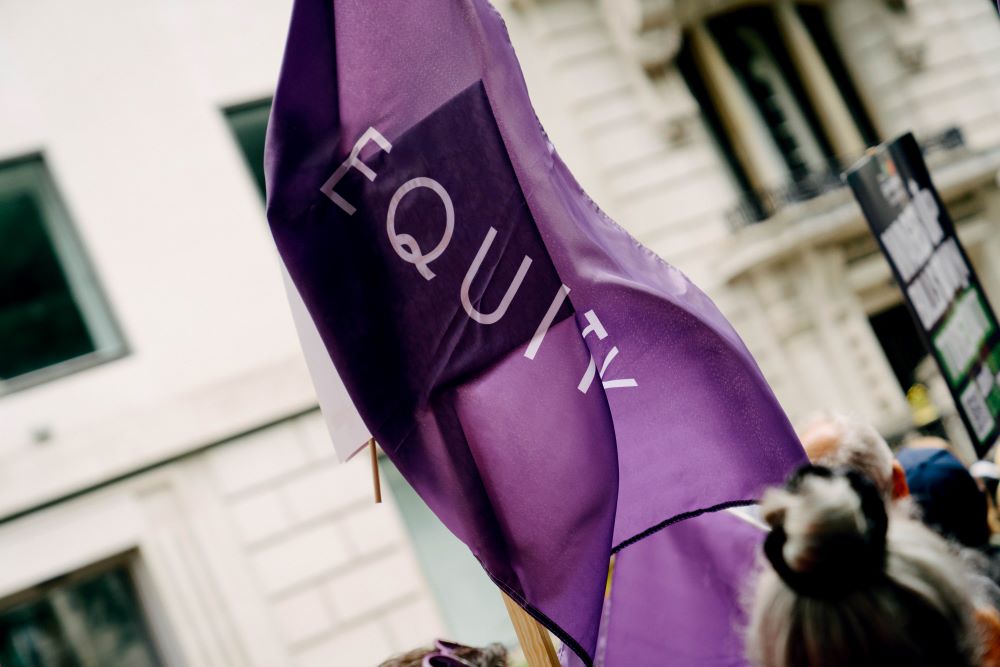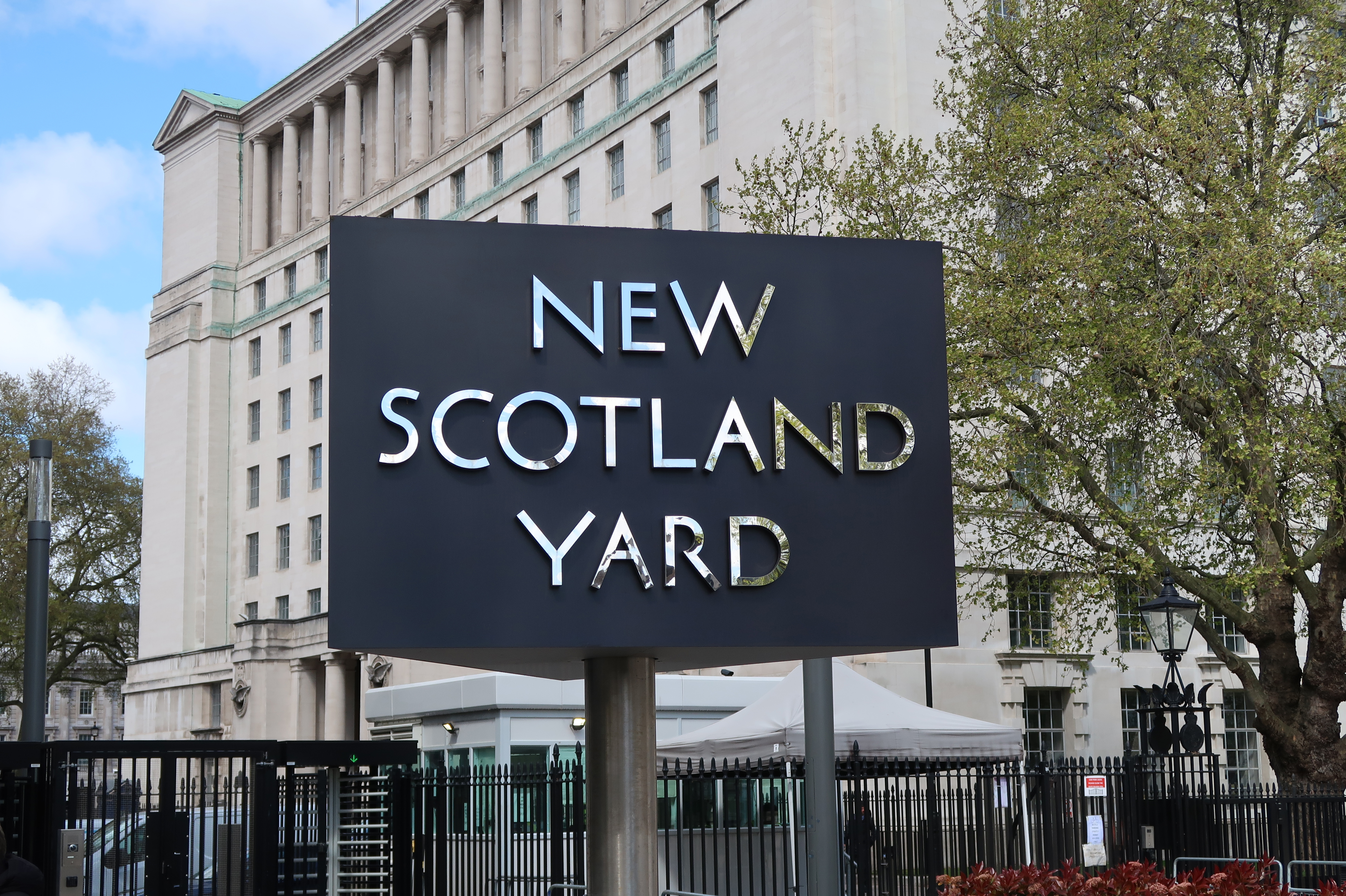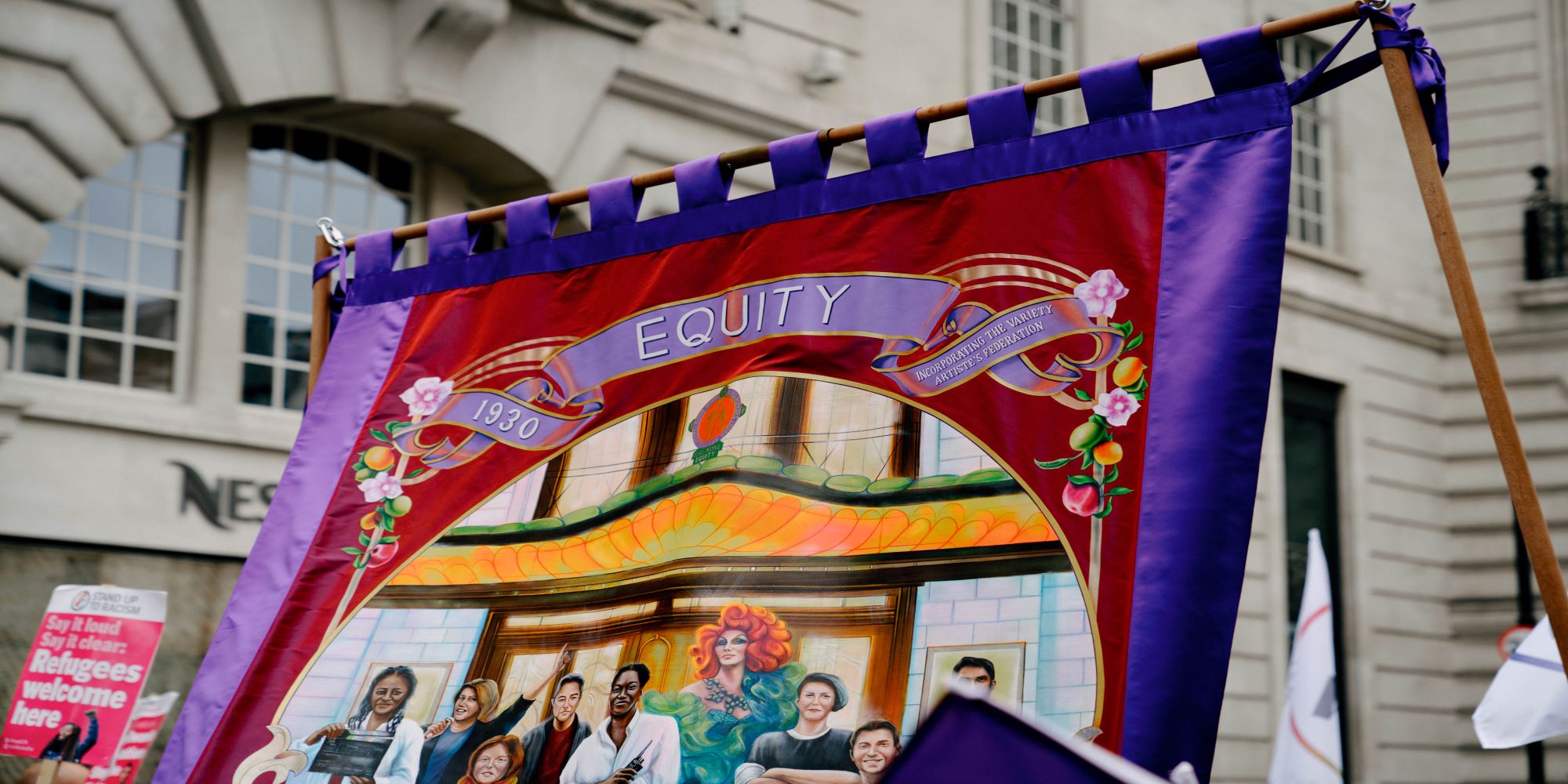Equity is today launching a campaign to #AbolishAuditionFees for drama schools and performing arts courses. Called ‘Break Down Barriers’, the campaign will also seek to address other obstacles that prevent aspiring artists – especially those from working class backgrounds and marginalised communities – from entering the performing arts industry.
A survey of our student members has shown that students are struggling to pay drama school audition fees and course costs. Over half (56%) of all respondents, and two-thirds (65%) of working-class respondents were prevented from applying to training institutions due to audition fees and hidden course costs such as supplies, resources and other expenses required.
71% of respondents say that removing audition fees would be the most effective way to break down barriers to the performing arts.
Of the 94% of survey respondents who had to audition for a performing arts course, 57% had to pay audition fees costing between £40-£80. Less than 3% of people were offered reimbursement for audition expenses such as food, travel or accommodation. Many students spent hundreds, and some thousands, of pounds on auditions and applications.
Campaign demands
Led by Equity’s Student Deputies Committee, made up of elected Equity members representing the union’s student membership, the ‘Break Down Barriers’ campaign calls on people to sign a petition demanding institutions with creative and performing arts courses:
- Scrap audition fees.
- End hidden course costs.
- Cover expenses for accessing auditions and open days.
The campaign comes after the Royal Central School of Speech and Drama scrapped its audition fees in April this year to combat “elitism” in the arts. In October 2022, the Liverpool Institute for Performing Arts also scrapped its audition fees in an effort to increase access and diversity.
Sign the petitionThe barrier to a career in the performing arts comes up right at the start of our journey – when too many working-class creatives are put off because of the costs of training.
Equity’s Student Deputies Committee
Equity’s Student Deputies Committee, says: “People wonder why performing arts awards don’t tend to go to working class recipients, or why it’s so hard to succeed in the industry unless you’re a ‘nepo baby’ – and the answer is obvious to anyone from a working class background who has tried to make it in the industry. Low pay and precarious work are made worse by wider issues such as the housing crisis, rising cost of living and the weakened social safety net. But the barrier to a career in the performing arts comes up right at the start of our journey – when too many working-class creatives are put off because of the costs of training. It’s not right that performing arts students are expected to pay £40-£80 to apply for an undergraduate course, especially when you consider that this is not the norm for other subjects. Abolishing audition fees for drama schools and performing arts courses is the very first step on the long road to tackling inequality when it comes to accessing and maintaining a career in the arts. Everyone should have the chance to pursue their talents, no matter their background.”
Louise McMullan, Equity’s Deputy General Secretary says: “Equity’s student members have first-hand experience of how difficult it is to break into the performing arts industry, encountering many obstacles such as expensive tuition fees, extortionate rent, and maintenance grants that often don’t cover the cost of living. The abolition of audition fees, alongside hidden course costs, is the very first and tangible step in breaking down barriers for students from non-affluent backgrounds. We applaud the drama schools that have already committed to tackling elitism in the industry by scrapping their audition fees, and call on others to widen access by following their lead.”
Further survey results
Two thirds (65%) of our student members who received a maintenance loan said it did not cover their living costs, with three-quarters (76%) having to work and 15% going into debt to cover costs. 96% of respondents were told to spend their own money on supplies, resources and other expenses as a requirement of their course.
Although some performances arts courses offer audition fee waivers to prospective students who can prove financial constraints or hardship, almost half (46%) of respondents to Equity’s survey said that having to apply for this would put them off applying for training in the performance industries. Applying for audition fee waivers can be an exposing process, which can include disclosing parental income or proving receipt of free school meals.
There were 261 respondents to our survey, drawn from student members (those on Equity’s Education & Training Membership). The survey closed in August this year.
Class in the industry
Evidence shows that working class people are being forced out of the industry. 40% of all British cultural stars nominated for major awards – such as the Oscars, Baftas and Mercury prize – in the last decade were educated at private school. This is despite only 6% of the population being privately educated.
In a report published in May this year, the Creative Industries Policy and Evidence Centre found that just over 8% of creatives working in film, TV and radio are from working class backgrounds, with over 60% being middle or upper class – the highest rate in the last ten years.
Meanwhile, just 16% of those working in music and performing arts came from working class communities, with almost 65% coming from middle or upper class backgrounds – another record high.




